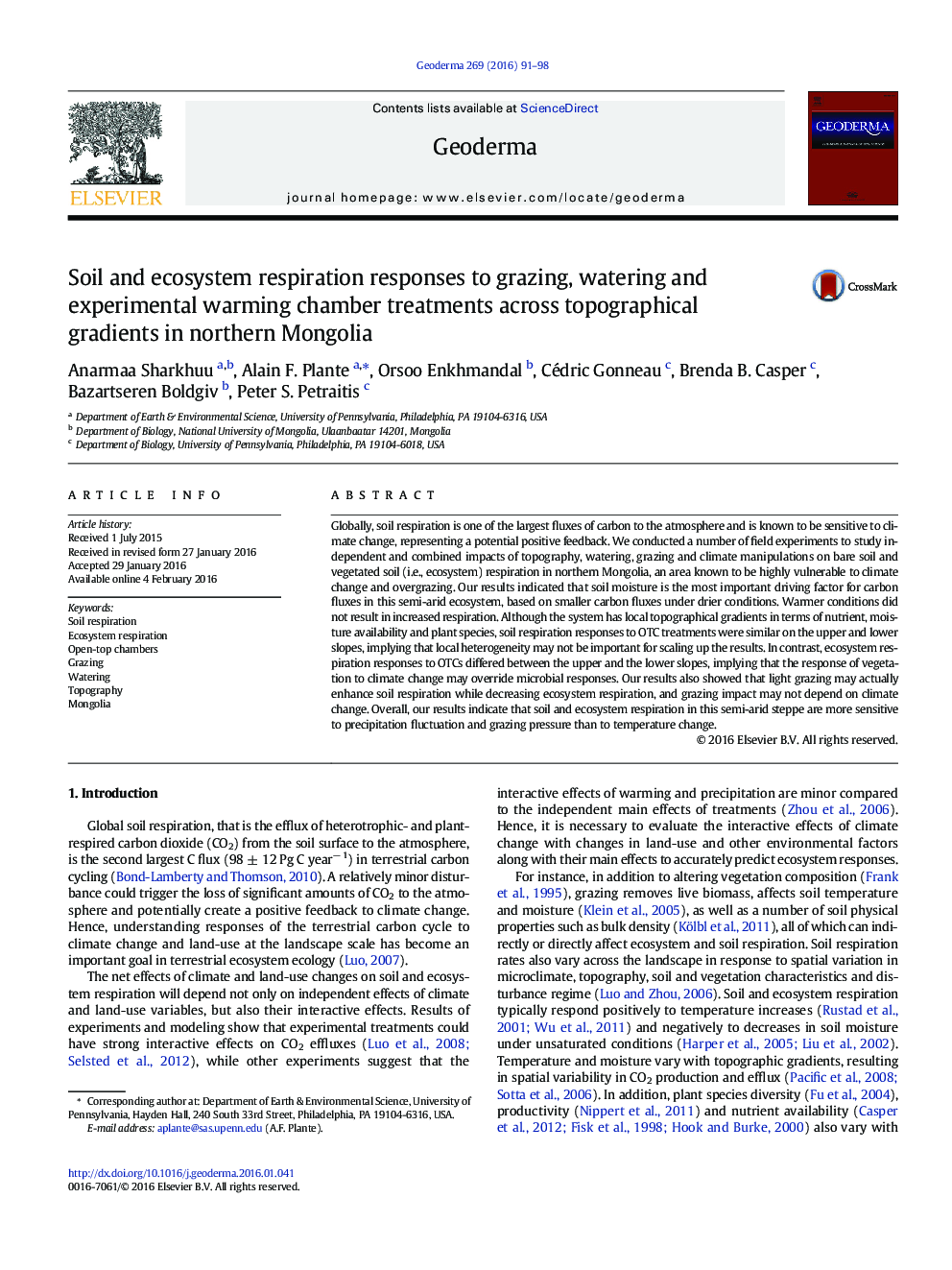| کد مقاله | کد نشریه | سال انتشار | مقاله انگلیسی | نسخه تمام متن |
|---|---|---|---|---|
| 4573005 | 1629448 | 2016 | 8 صفحه PDF | دانلود رایگان |
• Field experiment on topography, watering, grazing and climate in northern Mongolia
• Measured soil moisture and temperature, and bare and vegetated soil respiration
• Respiration responses to chambers differed between upper and lower slopes
• Grazing enhanced bare soil respiration but decreased vegetated soil respiration
• Soil respiration in semi-arid steppe more sensitive to moisture than temperature
Globally, soil respiration is one of the largest fluxes of carbon to the atmosphere and is known to be sensitive to climate change, representing a potential positive feedback. We conducted a number of field experiments to study independent and combined impacts of topography, watering, grazing and climate manipulations on bare soil and vegetated soil (i.e., ecosystem) respiration in northern Mongolia, an area known to be highly vulnerable to climate change and overgrazing. Our results indicated that soil moisture is the most important driving factor for carbon fluxes in this semi-arid ecosystem, based on smaller carbon fluxes under drier conditions. Warmer conditions did not result in increased respiration. Although the system has local topographical gradients in terms of nutrient, moisture availability and plant species, soil respiration responses to OTC treatments were similar on the upper and lower slopes, implying that local heterogeneity may not be important for scaling up the results. In contrast, ecosystem respiration responses to OTCs differed between the upper and the lower slopes, implying that the response of vegetation to climate change may override microbial responses. Our results also showed that light grazing may actually enhance soil respiration while decreasing ecosystem respiration, and grazing impact may not depend on climate change. Overall, our results indicate that soil and ecosystem respiration in this semi-arid steppe are more sensitive to precipitation fluctuation and grazing pressure than to temperature change.
Journal: Geoderma - Volume 269, 1 May 2016, Pages 91–98
